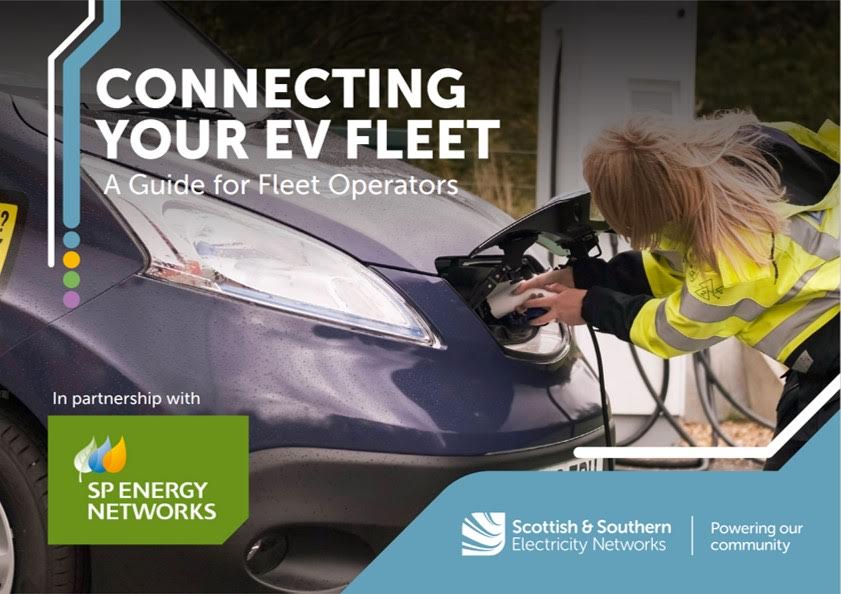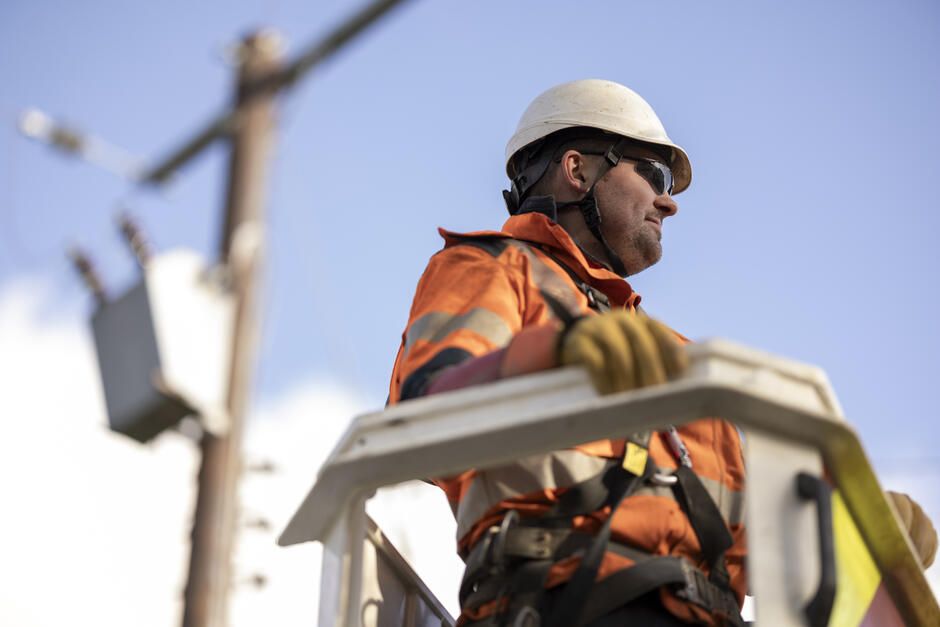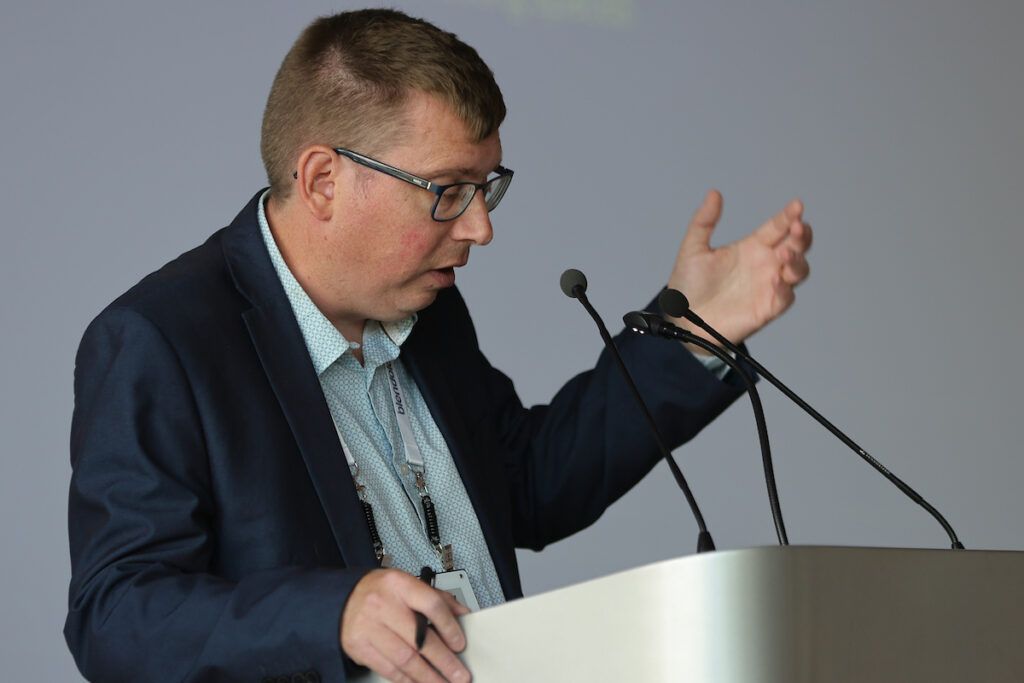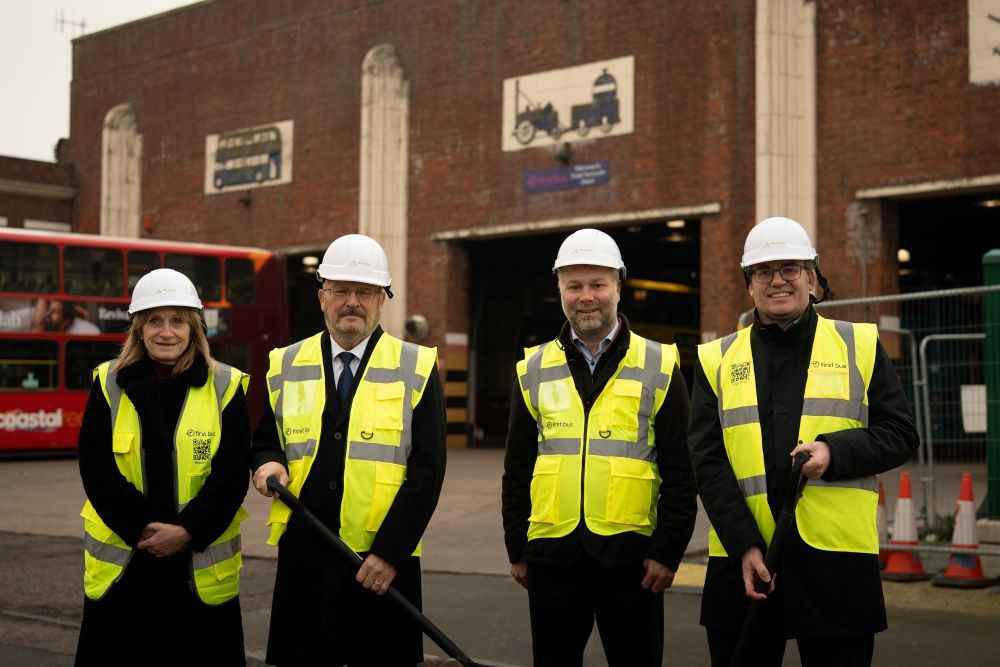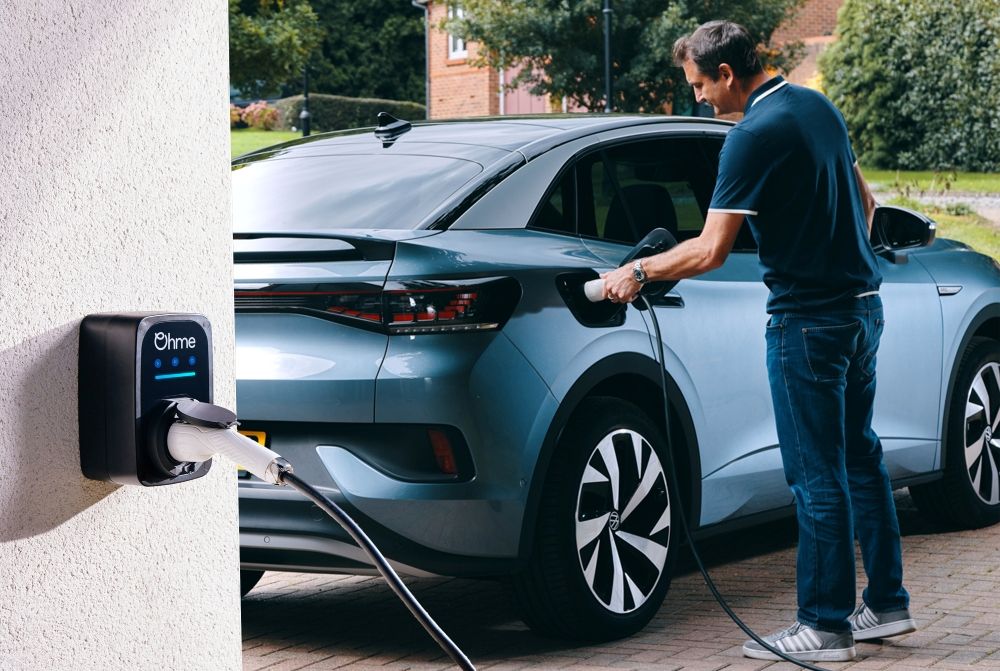Scottish and Southern Electricity Networks (SSEN) Distribution, SP Energy Networks and EV fleet and battery storage specialist Zenobē have joined forces to provide guidance on how fleet operators can switch to electric.
The companies have worked collaboratively through Scotland’s Bus Decarbonisation Taskforce to produce guidance which is designed to help them make informed technology choices and work with their network operator.
The Scottish Government has set world leading targets to end Scotland’s contribution to climate change by 2045 and the transport sector is playing its part. Scottish electricity distribution network operators (DNOs), SSEN and SP Energy Networks, and Zenobē, are working to support operators’ zero carbon ambitions and to build information about fleets to ensure the network is ready.
As fleet operators look to replace their vehicles with greener alternatives, they will need to understand and analyse their current and future electricity and charging infrastructure requirements. To support operators in their decarbonisation journey, Zenobē have published a guide to electric vehicle batteries and battery performance. The DNOs’ guide provides an overview of the engagement, design and connections processes for working with local network operators to enable the charging infrastructure required.
Publication of the Connecting your Fleet: A Guide for Fleet Operators and Leading the charge: electric vehicle batteries and battery performance for fleet operators has been welcomed by the Confederation of Passenger Transport (CPT), which is working to ensure that the four billion journeys made each year by bus and coach in the UK are aligned with net zero targets. The guides were developed with all fleet operators in mind and are not just for bus and coach operators.
Minister for Transport, Jenny Gilruth said: “The Scottish Government’s Bus Decarbonisation Taskforce is accelerating the transition to net zero by creating new partnerships. I am pleased to see yet another important output from the Taskforce through these new guides for operators wanting to making the switch to electric vehicles.
“Only through collaboration can we effectively decarbonise fleet with the speed that the climate emergency requires. I welcome the effort made by Scotland’s distribution network operators and Zenobē who are sharing their experience and expertise on vehicle charging to bus and other fleet operators through these new guides.”
Andrew Scott, Director of Connections at SSEN said: “We are committed to helping power our communities to net zero and are sharing guidance that will help smooth the customer journey. I would encourage all fleet operators to join our webinar and learn how to we can assist in their transition to net zero.
“We have announced that we will invest £4bn in our networks up to 2028 to create the modernised local electricity grids of the future. We are delighted to be working alongside Transport Scotland, SPEN, CPT and Zenobē on this project and hope the guide will be a helpful resource for UK fleet managers across the wider transport sector.”
Scott Mathieson, Director of Regulation and Planning at SP Energy Networks said: “Electrifying all transport in Scotland – domestic, public and commercial – will significantly help Scotland towards its climate change targets. We’re about to start work on a multi-billion pound investment in our electricity networks, providing the essential infrastructure needed to enable this change and ensure all communities benefit on the road to Net Zero.
“Working with our partners, this new guide will equip fleet operators with the tools they need to start working towards their own decarbonisation targets. We have already helped a number of companies, including First Bus, Stagecoach and Lothian buses, to decarbonise their fleet and we stand ready to help others on their journey.”
Steven Meersman, Co-founder and Director of Zenobē said: “The decision to transition fleets to electric can be daunting with many decisions to be made ranging from grid supply and on-site storage to charger speeds, vehicle type, route and schedule. These all need to come together, with decisions in one area impacting the other for years to come.
“Supporting over 700 vehicles across more than 23 depots and 7 countries has taught us that it is critical to consider everything upfront before you put a shovel in the ground. We hope that with our guide we can remove some of the mystique and make clear the many options that exist to make electrification easier and more cost effective without having to compromise on your operational needs.”
Duncan Cameron, Chair of the CPT Scotland said: “A key aspect of facilitating fleet decarbonisation will be identifying and addressing operational hurdles, and the provision of information to allow operators to make informed investment decisions. The Guides will be a catalyst for this, sparking conversations between DNOs and operators around electricity requirements and infrastructure.”
SSEN and SP Energy Networks are hosting a webinar on 23rd March 2022 at 10am, that will discuss the published guides, outlining the various charging solutions and smart technology available, the key steps to consider before electrifying a fleet, and sharing case studies of some real-life examples. Fleet owners and other interested stakeholders can sign up to the free event below.
Stakeholders based in the north of Scotland and Central Southern England can sign up here, while those based in Central & Southern Scotland, Merseyside, Cheshire, North & Mid-Wales and North Shropshire can sign up here.
Image courtesy of Shutterstock.



